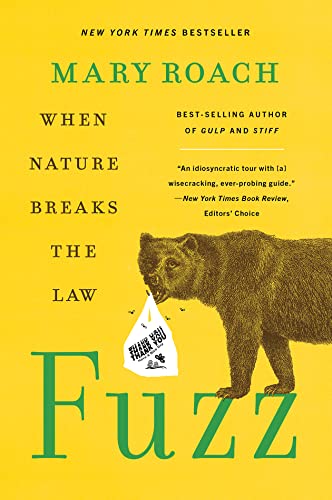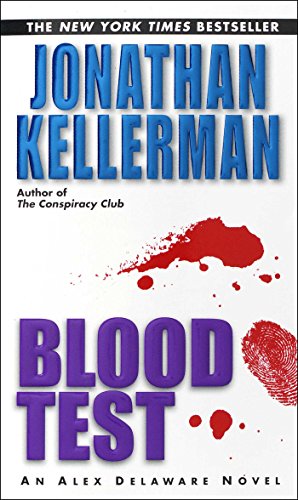This book is dedicated to my family, to the memory of Karen Phillips, and to all who care for New Orleans.
1.
Thursday morning, Houston, Texas
Summer
“What’s wrong with the flare?” Lynn Dayton, executive vice president for TriCoast Energy’s US oil refining operations, pointed to one of the giant, sentry-like structures visible through the refinery’s conference room window. The yellow flame should have been soaring at least fifteen feet above its 120-foot stack. The three executives meeting with Lynn turned to look a quarter mile away at the feeble smear of orange and smoke.
Lynn’s job had traditionally been held by men, a tradition hard to change. Khakis she’d thrown on at four thirty this morning for the flight to Houston hinted at her long runner’s legs. “Is a unit down?”
“I’ll check.” Reese Spencer’s short, white hair seemed to bristle to attention. He hurried out of the conference room with his cell phone. She’d hired Reese, ex-navy pilot and long-time friend, to run this refinery she had convinced TriCoast’s board to buy just before it hit bankruptcy court. She’d promised the board she would make it profitable by refitting the refinery to produce more gasoline at lower cost.
Four weeks left. A blink of an eye compared to the time required to find the perfect piping changes that would increase efficiency, make the calculations, bid it out, get the welders on site to install it, and restart the unit, hoping the whole time the fix worked and you didn’t have a fire on start-up. A nanosecond when it took weeks to find additional crude-oil supply, unload tankers, run the crude, pipeline the resulting gasoline to wholesalers, and get paid. And you’re the only one in this room who cares if you don’t meet the deadline because you’re the only one who’ll be toast.
This too-small flare meant yet another setback.
A group of the refinery’s executives, including the two resentful people in front of her, had also tried to purchase the refinery in a management buyout but hadn’t been able to raise the cash.
A frown pulled at Dwayne Thomas’s tobacco-stained lips. Lynn glanced at him and the woman sitting next to him, angled back in metal-frame chairs.
She wondered if she could get all four of the VPs to pull together before she and they lost their jobs or worse, were reassigned to suffocate in Special Projects. “We want to answer questions about the merger of Centennial with TriCoast. Where are the others?”
Dwayne hacked a smoker’s cough and clamped his ham-sized hands together. “Riley Stevens told me he had a morning meeting.”
Riley’s probably at a banker’s breakfast. If he valued his job he’d be here. Lynn had met the Centennial CFO only twice. But in the last few weeks she had heard rumors about his attitude toward women.
Jean-Marie Taylor, a six-foot-tall woman who was VP in charge of safety and pronounced her name “John-Marie,” nudged Dwayne and rolled her eyes. “And Jay’s on a golf course somewhere.”
They’re accounted for so your worry is irrational. Hurricane season was starting. Luckily, only a few TriCoast employees had been missing after Katrina. But it took weeks to find their bodies.
Dwayne kept staring out the window. Lynn followed the gaze of the operations VP. An easy-to-read beacon of the refinery’s health, the flame atop the ten-story, needle-like structure telegraphed in a glance whether operations were normal. The same flame was still too short, too skinny. Dwayne turned. “Lynn, when you combine your existing Ship Channel refinery with ours, how many of us will you fire?”
What will you say this time to reassure him? “We need everyone. Now more than ever.” Except one.
“I don’t mean now. I mean . . .”
“Five operators down!” They heard Reese’s yell just before the wail of hydrogen sulfide alarms echoed off every tower, exchanger, and furnace.
The three of them jumped and rushed to the window, as if they could spot the source of the poisonous gas. But they knew hydrogen sulfide had no color.
“Where?” Lynn strained to hear over the high whine of the alarms.
Reese sprinted in from the hallway. “Adric thinks the leak is at a pretreater.” That’s why the flame on the flare is so short and skinny. The control center supervisor, Adric Washington, had likely turned off oil flowing into the pretreater to isolate it. By stopping the oil he was stopping the production of deadly gas.
“How many souls on board?” Reese asked quietly.
Souls on board. What a pilot says when the plane’s going down.
“A hundred and twenty of our own. Thirty-five contractors.” Dwayne wrapped big hands around the rim of his hard hat. “We gotta go see.”
Jean-Marie blocked the exit, hands on hips. “Stay here and don’t panic.”
“You can’t stop us,” Reese said.
“Yes, I can.” And she could. The safety officer pulled up to her six-foot-plus height. “The operators don’t need you big cheese in the way.”
After she strode away toward the refinery gate her command kept the room silent and motionless for only a moment.
“Now look at it!” Lynn ground her teeth in frustration as she put her hands on the conference room window and wrenched sideways for the best viewing angle. Pressurized liquid spilled out of a smaller flare and ignited as it hit oxygen and heat. Bright orange fireballs splattered the ground. She felt the glass vibrate against her fingers. We have to help those who might be hurt!
“I can’t let my men drop like flies!” Dwayne shouted, echoing her thoughts. “I don’t need Jean-Marie’s permission to go into my own refinery. Reese, you?”
Exclusion happens. Lynn interrupted, “Adric thinks the release is near the catalytic crackers. We’ll detour around them. Let’s find our folks.”
“You’re too pricey a chief to take a chance out there,” Dwayne said.
“Taking chances ‘out there,’ as you call it, is one reason I am the chief. We’ll go together. Reese has a truck.”
She grabbed a hard hat and safety glasses from a peg board in the bright white hallway. She and Dwayne raced outside to an old, red refinery truck with Reese and crammed themselves into it.
The truck rattled as the former navy airman ground gears. A guard waved them past razor wire fence and through the gate separating Centennial’s office building from its several acres of giant, spiky refining hardware.
Lynn heard the normal thunder of gas and liquids rushing through masses of pipes all around. Hot, sticky air swept in until they rolled up the truck’s open windows.
The processing towers were clumped in one area. Huge vessels two to five stories tall, each with manhole-sized inlets and outlets, were connected by bundles of either battleship gray or shiny insulated pipe. Pipelines of various diameters formed trellises over the roads. A complex network of more piping, heat exchangers, chillers, compressors, and pumps filled between the towers like metallic kudzu.
Everything had a number. Rushing through the C-200 area, they all jumped as a siren blast ricocheted off every exposed metal pipe, drum, and vessel in the refinery.
“Pull over!” Dwayne shouted. “That’s the H2S alarm again. We could be in the middle of another release!”
“We’ll be safer at the control center,” Reese said. He gunned the engine.
Staring over the black asphalt between the silver pipes, Lynn saw five mounds she at first thought were sacks of blue jumpsuits. “No! Stop! Our people are over there!” Oh Lord, none of them is moving.
Reese braked so hard his passengers braced themselves against the dashboard. Dwayne reached across Lynn to open the door but Reese yelled, “Don’t get out! You need respirators.” He gunned the truck again and they screeched up to a bright yellow kiosk.
“Hot zone!” Lynn shouted when they jumped from the truck and grabbed their equipment. Rotten-egg odor filled her nostrils. It’ll be even deadlier when you can’t smell it once your nerves are paralyzed.
“Drive to the control center,” Lynn told Reese. “Tell Adric to clear a space near the lockers. We’ll drag them in. We can’t wait for body boards.” She flipped on her oxygen mask making voice communication no longer possible.
Dwayne put a finger between the mask and Lynn’s face to check that her respirator was sealed tightly. She did the same for him. His practiced care with this simple safety gesture touched her.
They ran toward the bodies.
Two limp forms lay motionless next to an orange flag at the huge metal drum known as the catalytic cracking pretreater. Another operator was draped over the big bypass valve wheel. Two more lay twenty feet farther. Hydrogen sulfide for sure.
Thousands of butterflies wanted out of her stomach. Lynn told herself to stay calm. Slow down. Don’t screw up. Everyone’s depending on you.
She saw the first person. His shirt was pulled up over his mouth and his eyes were open.
Maybe they’re just unconscious. Maybe the concentration’s not high enough to kill them. Have to get them out and start CPR. Lynn pointed to a gap in the pipe near the valve and dragged her finger across her throat. The source.
Dwayne nodded and pointed toward the bodies farthest from the gap, the ones most likely to survive.
He knelt next to a man, Lynn behind a woman lying face up. They hoisted the operators under their armpits and dragged them toward the control center. Steel reinforcing in the toes of the woman’s boots caused her feet to splay out and hit the ground. The boot heels scraped mercilessly on the cement pad and caught in cracks as Lynn dragged her. The woman’s hard hat banged into Lynn’s chest with each step. She tried to forget that the most she’d lifted in a weight room was forty pounds. She tried not to think the words “dead weight.”
Her mask began to slip on her sweaty face. Surely Dwayne didn’t loosen the seal when he checked it. She smelled sour gas but didn’t dare lay the woman down to tighten the seal. If only she could make it to the control center.
She spared Dwayne a glance. Intent on moving another victim, he grunted, his face revealing only the strain.
They were still fifty yards from the cement-block control center when Jean-Marie, Adric, and a man Lynn didn’t recognize ran past. Also bulked up with respirators, they were looking for victims, too. Lynn nodded toward the pretreater valve.
The harder she panted, the more the sulfurous smell seeped into her nose. Twenty yards to go.
Reese held open the door of the control building that led to the lockers. She looked over her shoulder to make sure Jean-Marie and the others found the remaining operators. Can’t leave anyone behind.
Lynn pulled the woman in, laid her down on the tiled floor, and cradled her head as it rolled to one side. She ripped off the mask she’d put on only minutes before, pressing her fingers to the woman’s smooth, brown throat, then to her wrist. Where’s her pulse? God, help me find it! The woman’s black curls were damp against her head. The smell of hydrogen sulfide steamed from her skin.
“I can’t feel anything,” Dwayne yelled.
The door opened. Jean-Marie, Adric, and the third man dragged in the other three operators. They looked even worse than the woman Lynn was treating.
“Medics are on the way. They said to focus on the ones we can save.” Jean-Marie’s words tapered off until they were almost inaudible.
Lynn pumped the woman’s chest through her thick blue shirt. Nothing. When she glanced up she saw heads shaking. Lynn kept pushing. “We have to try harder!”
“Christ, none of ’em has a pulse or is breathing,” Dwayne said.
“My man’s got a heartbeat!” Adric shouted. “Help me!”
Lynn pumped the woman’s chest again. She hadn’t breathed nor had her heart pumped a beat during the time Lynn had been with her. Probably not for fifteen to twenty minutes before that.
“We have to help the ones we can save,” Jean-Marie repeated.
Lynn made the horrible choice she had to make and placed the woman’s hands across her chest. Her palms were already cool. She shuddered and moved next to Adric. Her throat burned with the sob she stifled.
Adric’s black forehead glistened. He shook the man’s thin shoulders. “Are you okay?”
No response.
Lynn tilted the man’s head back and lifted his chin to establish an airway while Adric put his ear next to the man’s nose and mouth so he could listen and watch his chest.
The door to the adjacent room opened and other operators crowded in. “What’s wrong?” “Who’s hurt?” Voices rose to shouts.
“Get them out!” Lynn heard panic in Dwayne’s yell. The voices stilled and the door closed. The heat from the extra bodies abated.
Pinching the man’s nose shut, Adric breathed twice into his mouth.
“Come on buddy, you can do it,” Lynn implored.
“Breathe, goddamn you! Breathe!” The big engineer knelt over another body nearby.
Still no response. Adric repositioned the man’s head and blew breath into his lungs again.
Lynn heard a gasp. Thank God. She clamped an oxygen mask to the man’s mouth. The man gasped several times more and coughed. Every person in the room sighed deeply, as if holding extra air for him. Adric leaned against the lockers.
“He’s going to make it,” Dwayne said.
The applause stopped as soon as it started. We saved only one, not five. The muscles in Dwayne’s arms convulsed.
Lynn stood up and moved back to the woman she’d brought in. The woman wore no ring because safety rules forbade jewelry. Wonder if she’s married. Has kids. Sifting out thoughts of her own boyfriend and his children, she clasped the woman’s cold hands, then those of each of the three men on the floor nearby. Tears she’d been trying to hold back gathered in her eyes.
“Let’s get him next door to the monitor room and wait for the ambulances,” Dwayne said. “It’s not good for him to see these others.”
“But Reese, would you . . .?” Lynn didn’t have to complete her question before Reese nodded. He would wait behind with those they hadn’t found fast enough.
She and Adric carried the lightly built man into a room lit with dozens of glowing screens. They laid him on a pallet of raincoats.
“Dwayne, have you met this man?” Jean-Marie asked.
“Armando Garza. Contractor, but he used to work here full-time. Knows Centennial as well as any of us.”
The now-conscious man stiffened, tried to sit up, and fell back. He clutched the oxygen to his face and took longer, deeper breaths.
“Easy, cher,” Jean-Marie said.
After a few minutes, two operators boosted Armando up and led him to the eyewash basin.
“Water’s the next course,” Dwayne murmured to silent nods. They’d all seen mild hydrogen sulfide poisoning before. Usually the victim went to the hospital, rested awhile, then stood up and went back to living. This was much worse.
The bigger operator braced himself and clamped his arms around Armando’s chest. The other held the man’s head over the basin. They opened jets and water shot into his face. Armando jumped back when the water hit his eyelids, then slumped to allow his face and eyes to be flushed.
Lynn asked Adric what had happened.
“My operators went out about eight thirty to do a pipe inspection. I can’t believe it. Not all four . . .” He stopped, choked.
A cramp knifed through Lynn’s calves. A cramp as fast as a light switch being flipped. She stretched up and down through her toes to ease the excruciating clutch, a physical betrayal of the emotion she always had to hide.
After a few minutes over the sink, the husky operator tilted the man’s head back and the other rinsed his eyes with saline solution. Then they led him to a shower around the corner.
A squinty-eyed man pushed in next to Adric. His mustache almost covering his big teeth, he was the stranger who’d helped Jean-Marie and Adric with the victims. “Like Adric said, the operators had left for rounds. Armando was standing around telling jokes and got a call-out to the cracking unit. When he radioed his crew chief for help, they notified us because we were a half mile closer. Said they thought it was H2S.”
Adric recovered his voice and picked up the story. “After the call, I had my crew turn off flow, then sound the alarms.”
“I’m glad you were right on top of the situation,” Lynn said.
Turning off the oil had also cut the gas flow to the flare and explained the flare’s dimming they’d seen from the conference room, as Lynn had assumed. This refinery still has its expert operators. But what caused the leak?





















































































